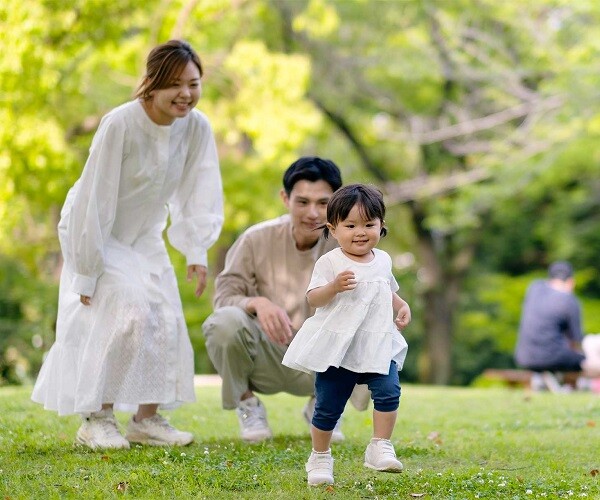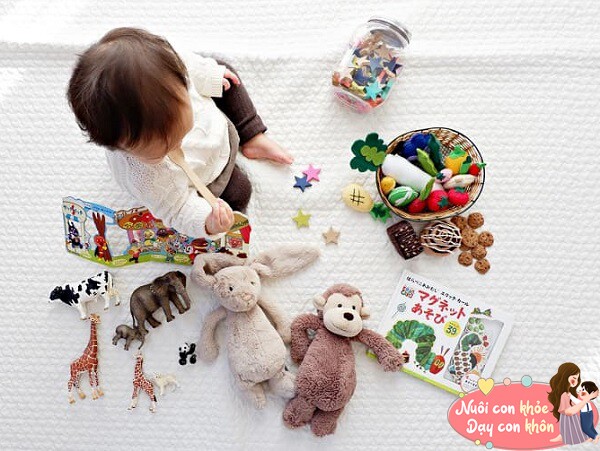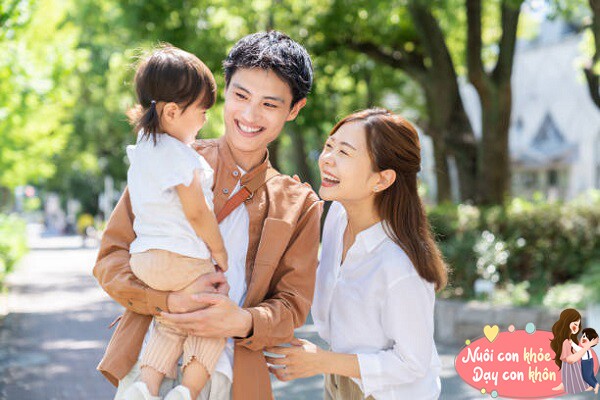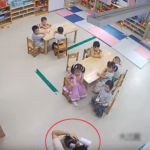While gifts, toys, or luxuries can bring instant joy, it’s the presence and attention of parents that create more lasting values in a child’s soul.


Do children who have their material needs met struggle to find happiness?
According to experts, happiness is linked to the brain’s wondrous chemistry with pleasure.
For instance, a person might be surprised by the first bite of chocolate, but after eating ten pieces, they’ll likely get bored and not want any more.
Similarly, commercial entertainment that uses strong stimuli (sound, light, and fast feedback) to trigger a quick release of dopamine will also lose its appeal over time.
When children are frequently exposed to these high-intensity stimuli, their brains automatically raise the happiness threshold to maintain balance.
Consequently, they require stronger stimuli to feel happy, while normal, subtle happiness becomes bland and meaningless, like plain water.
Thus, it’s understandable that true happiness for children comes not just from material things but also from the moments of connection between parents and their kids. Children need to feel loved through specific actions, such as spending time together, conversing, or simply listening to their thoughts and emotions.

True and lasting satisfaction comes from endorphins
Research shows that endorphins are typically released after deep engagement and overcoming challenges. For example, when children assemble a tank from building blocks or learn to ride a bike, endorphins provide a sense of profound and lasting accomplishment.
Today’s children are often too busy with various activities and rarely get to experience this type of “happiness earned through hard work.”
From a neuroscience perspective, the mirror neuron system in the brain can explain why absent-minded companionship has such limited effectiveness.

True and lasting satisfaction stems from endorphins.
Children’s brains are programmed to understand and empathize with others’ emotions through mirroring. When parents are merely present instead of empathically engaged—for instance, when they’re engrossed in their phones while playing with their child—kids keenly sense this emotional disconnect.
This is why sometimes, simply kneading dough and gazing at the sky can make children happier than expensive activities. What they truly need is emotional empathy, not just material satisfaction.

What is the golden age for nurturing children’s happiness and proper brain development?
Developmental child psychology reveals that the golden age for nurturing children’s happiness and proper brain development is between the ages of two and seven. During this phase, the most valuable activity is proactive creativity, such as turning a cardboard box into a spaceship or writing stories for dolls…
These spontaneous play behaviors contribute to the development of the frontal lobe, enabling children to think better and regulate their emotions more effectively.
If parents try to fill their children’s time with ready-made toys and complex activities, they deprive them of the opportunity to cultivate these abilities.
Instead, make time for quality play with your child. For example, go to the park together and lie on the grass to watch the clouds, or give your child some old cardboard boxes, a roll of tape, and a box of crayons to encourage open-ended creativity… At first, your child might feel bored, but over time, their creative mechanisms will spark curiosity.

The golden age for nurturing children’s happiness and proper brain development is from two to seven years old.
Neuroscience indicates that when a person is in a relaxed or trance-like state, the default mode network, closely associated with creativity and self-reflection, is most active. In other words, when children seem to be doing nothing or zoning out, their brains are quietly integrating information and sparking inspiration.
True friendship isn’t dependent on the amount of money parents leave to their children but on the level of sincere investment.
When parents pour their heart into daily life and illuminate creativity through friendship, children will shine and find happiness.
New ideas and creativity will become an essential part of shaping their personalities and intelligence. Time spent with your child is also an opportunity to build a strong family bond.





































